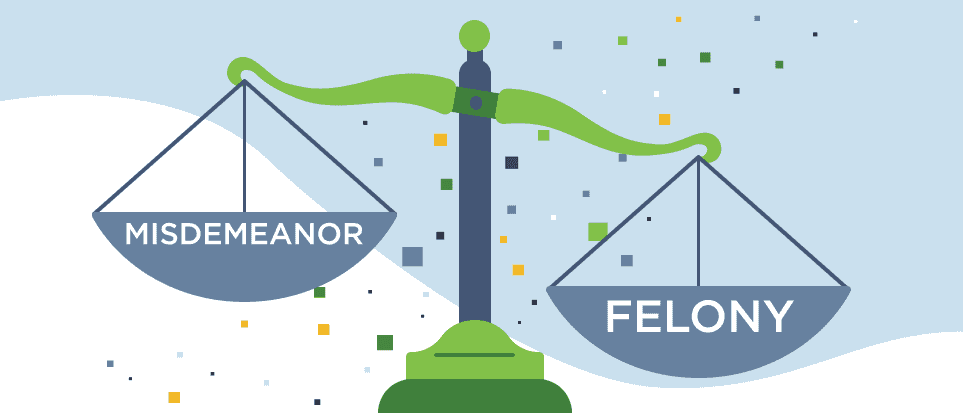If you’ve recently been pulled over or know someone facing drunk driving charges, you might be wondering: is a DWI a criminal offense? The answer—yes, it absolutely is—can be a bit jarring, especially for people who thought it was “just a traffic issue.” A DWI, or Driving While Intoxicated, is not a civil infraction or a minor ticket. It’s a criminal charge with real and lasting consequences.
This article breaks down why a DWI is classified as a criminal offense, what the penalties can include, and how it impacts your record, reputation, and future. We’ll dive into the legal definitions, explore how DWIs are handled differently across states, and share real-world scenarios of people who found themselves facing the full weight of a criminal justice system after a night out.
If you’re asking, “is a DWI a criminal offense?”, this guide will give you the clarity you need to fully understand what you’re dealing with—and how to handle it.

What Exactly Is a DWI?
Before we dive deeper into is a DWI a criminal offense, let’s clear up what a DWI actually is. DWI stands for Driving While Intoxicated. It generally means operating a vehicle while your mental or physical faculties are impaired by alcohol, drugs, or both. Most states use a blood alcohol content (BAC) limit of 0.08% to determine intoxication.
But here’s the thing: you can still be charged with DWI even if your BAC is under 0.08%, especially if your behavior or driving suggests impairment. DWI charges apply not only to alcohol but also to prescription medications, marijuana, or any controlled substance that affects your ability to operate a vehicle safely.
So the next logical question is…
Is a DWI a Criminal Offense in All States?
Yes, in every U.S. state, a DWI (or DUI—Driving Under the Influence) is classified as a criminal offense, not a civil one. That means:
- You can be arrested and booked.
- You may be required to appear in court.
- You could face jail time, probation, fines, or community service.
- The offense will appear on your permanent criminal record, unless sealed or expunged.
Even a first-time DWI carries criminal weight. It might be a misdemeanor, but that doesn’t mean it’s harmless.
Misdemeanor vs. Felony DWI: What’s the Difference?
To fully understand whether a DWI is a criminal offense, you need to know the difference between misdemeanor and felony classifications.
Misdemeanor DWI
This is the most common DWI charge. It typically applies when:
- It’s your first or second offense.
- No one was injured or killed.
- There was no child passenger in the vehicle.
- Your BAC was under a certain threshold (often 0.15%).
Penalties may include:
- Fines up to $2,000
- Jail time (up to 180 days)
- License suspension
- Court-ordered education or rehabilitation programs
Felony DWI
A DWI becomes a felony when:
- It’s your third offense or more.
- You caused serious bodily injury or death.
- You had a child under 15 in the car.
- Your BAC was significantly higher than the legal limit.
Felony DWIs are much more serious and come with:
- Prison time (up to 10 years in Texas, for example)
- Hefty fines (up to $10,000)
- Long-term license revocation
- Permanent criminal record
Felony charges can alter the course of your life. You’ll face stricter background checks, limitations on professional licenses, and loss of rights like owning firearms or voting (depending on the state).

Real Case: When a Misdemeanor Becomes a Felony
Derek, a 38-year-old construction foreman in Austin, was pulled over after weaving on the highway. It was his third DWI in ten years. Even though there was no accident or injury, he was charged with felony DWI due to his record. He served prison time and lost his job—proof that a DWI can be both criminal and life-altering.
Is a DWI a Criminal Offense If It’s Your First Time?
This is a question many people ask. Yes, even a first-time DWI is a criminal offense. It’s typically a Class B misdemeanor, but it still results in an arrest, court proceedings, and the possibility of jail time or probation.
Many first-timers mistakenly think they’ll get a slap on the wrist. But the reality is that the consequences are significant—even if you don’t go to jail.
First-Time DWI Consequences
- Up to 180 days in jail
- Fines and court fees totaling $3,000 or more
- Driver’s license suspension
- Skyrocketing auto insurance rates
- A permanent criminal record
- Mandatory DWI education

Real-World Example: Rachel’s Job Interview
Rachel, a 27-year-old nurse in Houston, was arrested for her first DWI after attending a wedding. She avoided jail time, but the charge appeared on a background check for a new job at a hospital. Even though she explained the situation, she didn’t get the position.
That’s the hidden cost of answering “yes” to is a DWI a criminal offense?—it follows you long after your court date.
How a Criminal DWI Record Affects Your Life
The moment you ask is a DWI a criminal offense, you should also ask: what does a criminal record do to my future?
Employment
Most employers run background checks. A criminal DWI can disqualify you from jobs in:
- Education
- Healthcare
- Government
- Law enforcement
- Transportation (like commercial driving)
Some jobs won’t hire anyone with any criminal conviction, regardless of the context.
Housing
Landlords can (and often do) deny applicants with criminal records. A DWI—even a misdemeanor—can limit where you’re allowed to live, especially in more competitive rental markets.
Travel and Immigration
A criminal conviction can block entry to countries like Canada and may complicate visa or immigration status if you’re not a U.S. citizen.
Custody and Divorce
A DWI can be used against you in family court, especially if children were involved or if the offense is recent. Judges look unfavorably on any history of impaired judgment when awarding custody or visitation rights.

Can a DWI Be Expunged?
We’ve established that the answer to is a DWI a criminal offense is yes. So the next logical question is: Can I remove it from my record?
The answer? Sometimes—but only under very specific circumstances.
You May Be Eligible for Expungement If:
- The case was dismissed
- You were found not guilty at trial
- You successfully completed a pre-trial diversion program
- You received a pardon (rare)
Convicted DWIs usually cannot be expunged. However, in some states, you may be able to seal the record through a non-disclosure order, especially for first-time offenses.
Are There Alternatives to Jail for Criminal DWI Offenses?
Absolutely. Judges and prosecutors in some counties offer deferred adjudication, diversion programs, or probation instead of jail time for first-time or low-risk offenders. These alternatives are often designed to reduce recidivism by treating the root causes of impaired driving, such as addiction or poor decision-making. They’re more likely to be granted if the individual shows genuine remorse and a willingness to comply with court-ordered programs.
These alternatives may include:
- Regular alcohol testing
- Ignition interlock devices
- Attendance at alcohol education courses
- Community service hours
Some counties even require participation in victim impact panels, where offenders hear directly from people affected by drunk driving. Each of these conditions serves to educate and monitor behavior while still holding the offender accountable.
The goal is rehabilitation—not just punishment. But don’t assume you’ll be offered these alternatives automatically. Prosecutors evaluate each case individually, and outcomes can vary based on local policy and the judge’s discretion. You’ll need a skilled defense attorney who can make the case for leniency and present mitigating factors effectively.
How to Defend Against a Criminal DWI Charge
Once you understand that a DWI is a criminal offense, you’ll also realize the importance of building a strong defense. A well-prepared defense can challenge weak evidence and shift the legal conversation in your favor before the case reaches trial. The earlier you begin working with a lawyer, the more opportunities there are to uncover flaws in the prosecution’s case.
Common DWI defense strategies include:
- Challenging the legality of the traffic stop
- Questioning the accuracy of field sobriety tests
- Disputing the calibration and results of breathalyzer machines
- Arguing procedural errors in the arrest process
- Presenting alternative explanations for observed behavior (e.g., medical conditions)

For instance, anxiety or inner ear issues can mimic signs of intoxication during a field test. Inaccurate test equipment, mishandled evidence, or officer bias can all be challenged effectively in court. Having an experienced DWI attorney can mean the difference between a conviction and a dismissal—or between jail time and probation. The right legal strategy can protect not only your freedom but also your future.
Final Thoughts: Is a DWI a Criminal Offense? Yes—And It’s a Big Deal
So, is a DWI a criminal offense? Without a doubt. Whether it’s your first time or your third, a DWI puts you squarely in the crosshairs of the criminal justice system. The charge stays on your record, affects your job prospects, raises your insurance rates, and can even impact your family and housing options.
But here’s the good news: knowledge is power. If you’ve been arrested or know someone who has, the sooner you act, the better. Hire a defense attorney, learn your options, and don’t assume the system will go easy on you just because it’s your first offense.
In the eyes of the law, a DWI is serious. And once you understand the full legal impact, you can start making smarter choices—not just in the courtroom, but in life.

